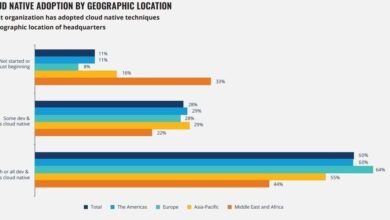Secure Patient Data by Tracking Its Storage Locations

▼ Summary
– Patient data stored or processed abroad falls under the laws of that country, potentially granting local governments access, making data location awareness critical for security.
– Chinese military-linked companies remain embedded in the U.S. digital supply chain, with some medical devices routing sensitive patient data through Chinese servers.
– U.S. and EU regulations like HIPAA and GDPR impose strict rules on patient data handling, with severe penalties for non-compliance, including fines and legal consequences.
– New U.S. DOJ rules (effective April 2025) restrict foreign access to health data, with penalties up to $1 million and 20 years in prison for willful violations.
– CISOs can protect data by selecting local providers, enforcing data-residency policies, implementing safeguards, and staying updated on laws and threats.
Protecting patient data requires knowing exactly where it’s stored and who can access it. When medical information crosses borders, it becomes subject to foreign laws that may allow local governments to access sensitive records. For healthcare organizations, tracking data storage locations isn’t just about compliance—it’s a critical security measure that safeguards patient privacy.
Recent investigations reveal concerning trends about how medical data travels through international networks. Connected medical devices sometimes route patient information through servers operated by foreign entities before reaching healthcare providers. For example, certain patient monitoring equipment was found transmitting data to Chinese-operated IP addresses while containing security vulnerabilities that could expose sensitive information. These findings highlight why healthcare leaders must scrutinize every step of their data’s journey.
Regulations like HIPAA in the U.S. and GDPR in Europe impose strict requirements on how patient data must be handled. While HIPAA focuses specifically on healthcare, GDPR applies broadly to any organization processing EU residents’ data, regardless of location. Violations carry severe consequences, including multimillion-dollar fines and reputational damage. New U.S. Department of Justice rules further tighten restrictions, imposing criminal penalties for willful mishandling of sensitive health data.
Healthcare CISOs can take proactive steps to strengthen data protection:
- Choose local data storage providers to keep information within jurisdictions with strong privacy laws.
- Audit third-party vendors to confirm their data handling aligns with security and residency requirements.
- Enforce strict data residency policies, ensuring all teams and partners comply with defined storage and processing locations.
- Deploy encryption and access controls to secure data both in transit and at rest.
- Monitor for compliance gaps using tools that detect unauthorized data movement or policy violations.
- Stay updated on evolving regulations, adjusting security practices as laws change.
- Train staff regularly to reinforce secure data handling protocols.
Data sovereignty is now as critical as defending against cyberattacks. With health records being prime targets in geopolitical conflicts, organizations must treat data location with the same urgency as ransomware or insider threats. By controlling where patient information resides and who governs it, healthcare providers can maintain trust while meeting stringent compliance demands.
(Source: HELPNET SECURITY)





